Strategic direction
According to Mr. Do Duc Duy, Minister of Agriculture and Environment, Resolution 57-NQ/TW defines the strategic orientation, with a consistent vision: Science and technology, innovation and digital transformation are not only decisive factors for sustainable development, but also the best opportunity for Vietnam to become a developed, rich and powerful country in the new era. Agriculture and environment are two fields that are under great pressure from climate change, resource depletion, environmental pollution; the traditional agricultural production model based on manual labor, high input costs, low added value is no longer suitable. Meanwhile, trends such as circular agriculture, multi-value agriculture, green transformation and digital transformation are becoming increasingly urgent. To change the situation, the whole industry must innovate its thinking and approach, taking science and technology and digital transformation as the foundation for development.
Drones used in sowing, fertilizing... rice were introduced at an event organized by Loc Troi Group in An Giang province.
Dr. Phan Xuan Dung, Chairman of the Vietnam Union of Science and Technology Associations, former Chairman of the National Assembly's Committee on Science, Technology and Environment, affirmed: No organization or country can achieve a sustainable position without possessing modern science and technology. Resolution 57-NQ/TW is consistent with the global development trend, placing science and technology, innovation and digital transformation at the center of the country's development strategy. At the same time, it demonstrates a breakthrough vision when identifying this as a revolution in which the state plays a leading role and scientists are the main force. In particular, abandoning the mindset of "if you can't manage, ban" will pave the way for many effective innovation models.
In recent times, the agriculture and environment sector has made many strides in applying science and technology and digital transformation, from high-tech agricultural models, smart livestock farming to automatic environmental monitoring, digitizing land, forest and meteorological data... Currently, the Ministry of Agriculture and Environment has a total of 21 science and technology organizations, 180 laboratories serving science and technology research. In the period of 2021-2025, the Ministry's state budget for science and technology is 4,687 billion VND, of which the agricultural sector is 3,594 billion VND and the environment is 1,089 billion VND. Regarding science and technology research, in the period of 2021-2025, a total of 1,201 programs, projects, proposals and science and technology tasks have been and are being implemented; Of which, 735 tasks have been completed, 466 tasks are being implemented... In addition, the Ministry of Agriculture and Environment also coordinates with partners and international organizations to build and implement many projects related to climate change adaptation, green growth and sustainable development...
Change your mindset, be determined to act
In addition to the achievements and fundamental advantages, the application of science and technology and digital transformation in the agricultural and environmental sector still faces many shortcomings. One of the core problems is that there is no legal corridor flexible enough to attract and retain highly qualified scientists. In addition, the allocation of resources for science and technology is unreasonable. At the local level, the budget for science and technology can be up to 2% of total expenditure, but there is a lack of human resources to implement it. Meanwhile, at the central level, where many leading scientists are concentrated, there is a lack of funding to carry out research. Not only that, investment is fragmented and spread out in stages, causing many places to have equipment but no operators, and to have laboratories but lack funding to maintain them. Another major barrier is complicated and lengthy administrative procedures. Many scientific topics and tasks take up to 5-6 years from proposal to approval and implementation, making research results no longer relevant to reality; slow technology transfer into production and waste of investment resources...
MSc. Le Phu Ha, Director of the Department of Digital Transformation, said that digital transformation is not just a matter of technology, but starts with a change in management thinking and the improvement of the legal framework. Digital transformation of the agriculture and environment sector aims at three pillars: digital government, digital economy and digital society. In particular, the target by 2025 is that the proportion of the digital economy in the sector is expected to reach 20-30%, through the digitization of resources, data and the application of modern technology in management and operation. To achieve the set goals, the agriculture and environment sector has identified a number of breakthrough solutions: perfecting the legal system on digital transformation, promoting the reduction of administrative procedures, deploying high-level online public services and applying strategic technologies such as Big Data, AI, IoT in operations. In addition, some opinions proposed building policies to attract and develop high-quality human resources for digital transformation - a key factor determining success. At the same time, continue to invest in specialized databases and ensure data is accurate, complete, up-to-date, and capable of being shared and interconnected between systems.
According to the spirit of Resolution No. 57-NQ/TW, institutions, infrastructure, data and technology are the four main pillars, but all must revolve around people. “The leader must get involved, directly direct, skillfully use technology and take responsibility. The journey of national digital transformation, digital economic development and building an innovative nation cannot stop at plans or slogans. It is a journey of commitment, of innovative thinking, drastic action and especially of valuing talented people as a survival strategy” - Dr. Nguyen Phu Tien, Deputy Director, National Digital Transformation Department, Ministry of Science and Technology, emphasized.
Dr. Phan Xuan Dung recommended that ministries and sectors increase research orders and effectively use scientific results, especially in practical areas such as hunger eradication and poverty reduction and environmental protection. Along with that, it is necessary to promote the dissemination of knowledge to people in remote areas, and honor intellectuals to create more development momentum in the new era. Some opinions proposed that breakthrough financial and institutional policies need to be implemented quickly to remove legal barriers, test new technologies, exempt from liability when innovation models fail, and most importantly: create a safe creative space and encourage risk-taking for businesses and talents.
Article and photos: MY THANH
Source: https://baocantho.com.vn/xung-luc-moi-trong-phat-trien-nong-nghiep-va-bao-ve-moi-truong-ben-vung-a186429.html


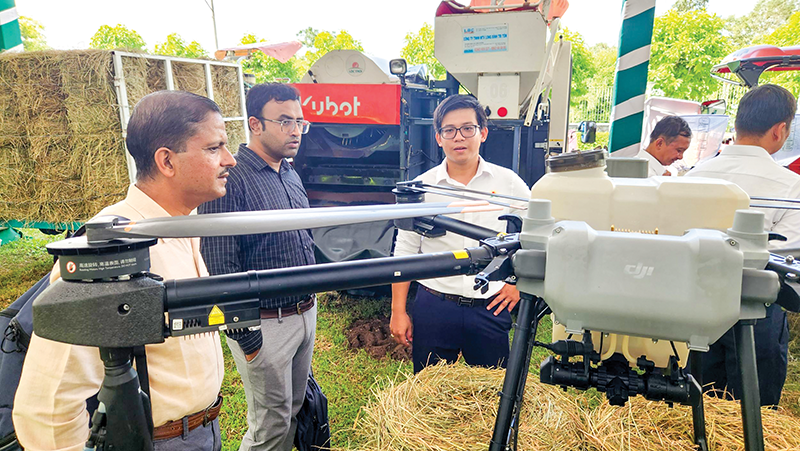



![[Photo] Prime Minister Pham Minh Chinh receives Country Director of the World Bank Regional Office for Vietnam, Laos, Cambodia](https://vphoto.vietnam.vn/thumb/1200x675/vietnam/resource/IMAGE/2025/5/15/2c7898852fa74a67a7d39e601e287d48)
![[Photo] National Assembly Chairman Tran Thanh Man meets with Thai Prime Minister Paetongtarn Shinawatra](https://vphoto.vietnam.vn/thumb/1200x675/vietnam/resource/IMAGE/2025/5/15/e71160b1572a457395f2816d84a18b45)

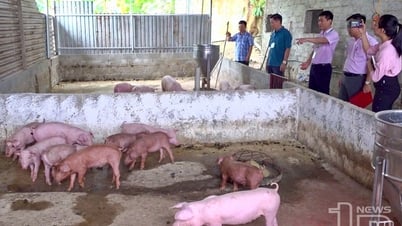





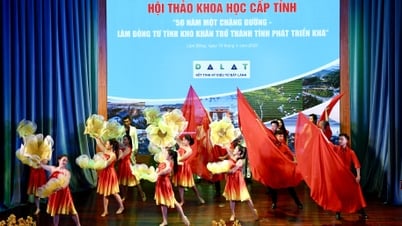

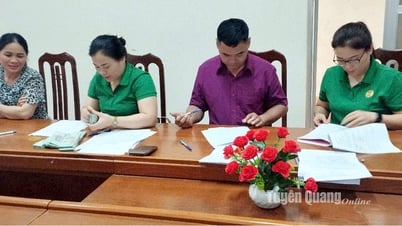

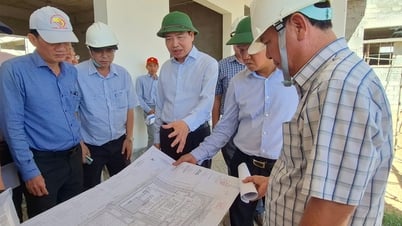





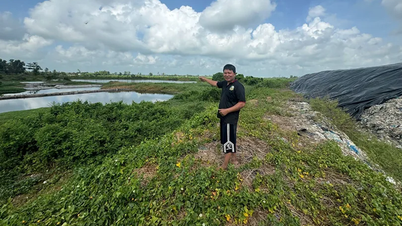


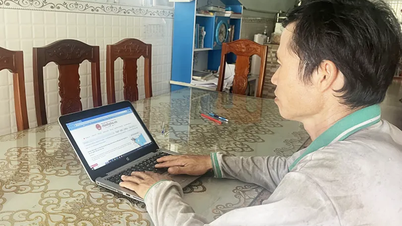
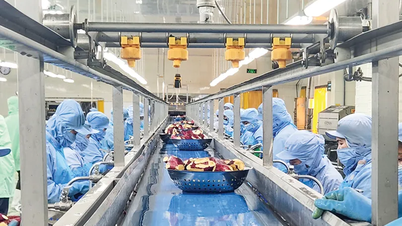
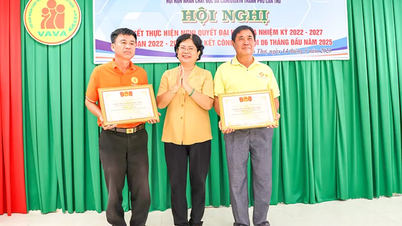








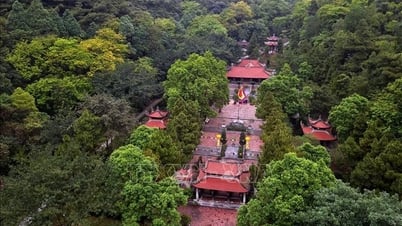































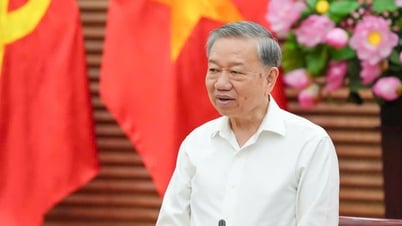


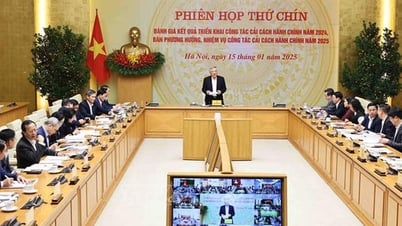
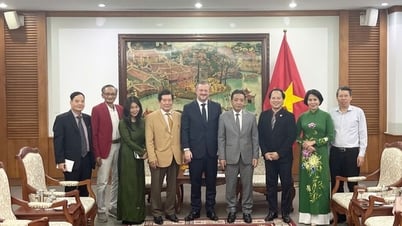
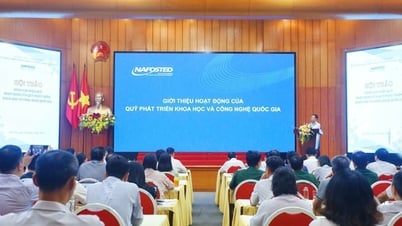

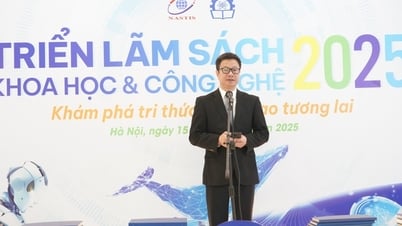
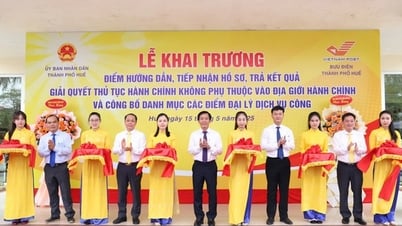
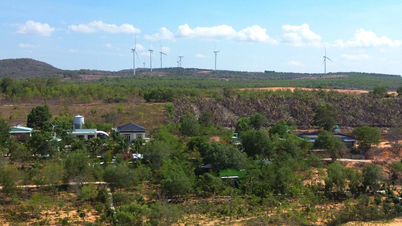

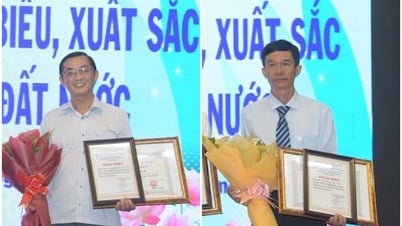
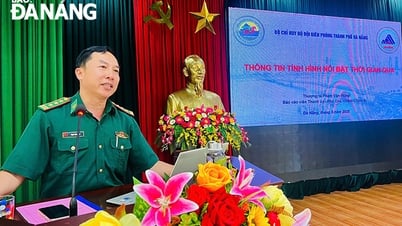

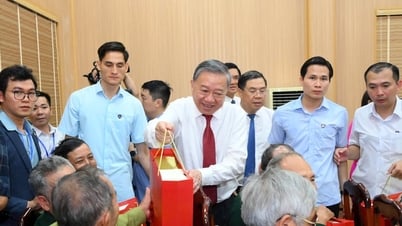







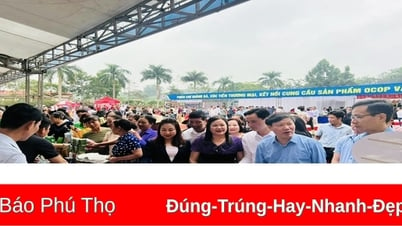


Comment (0)